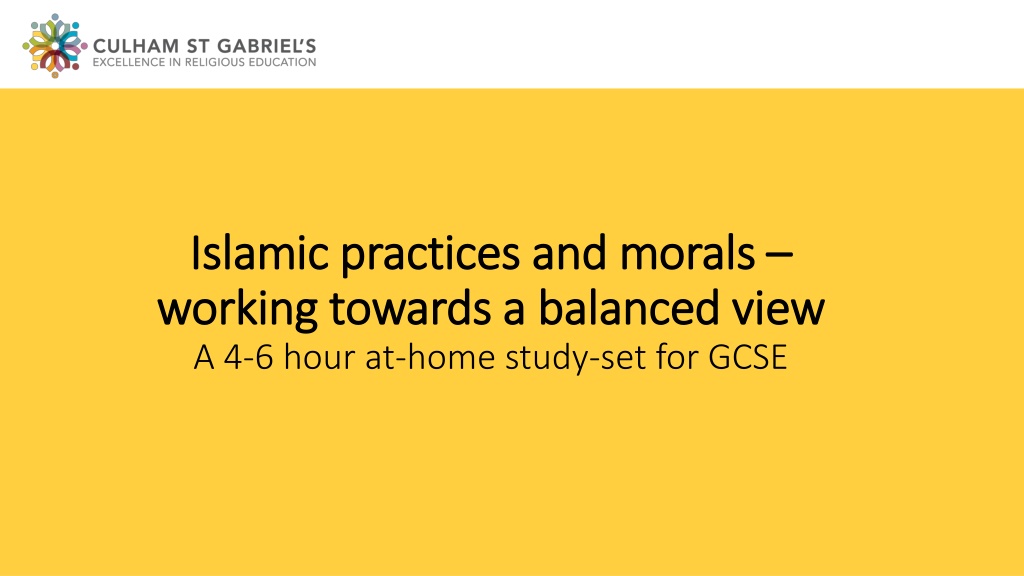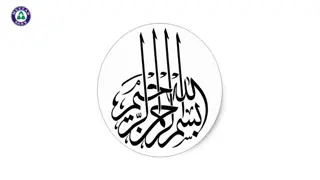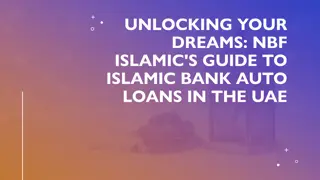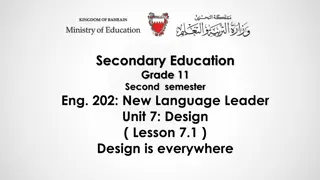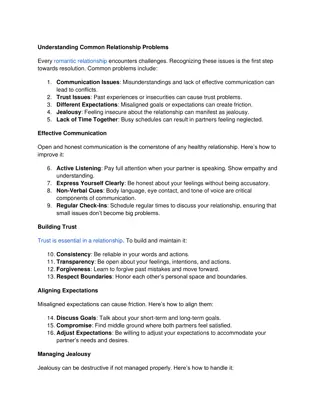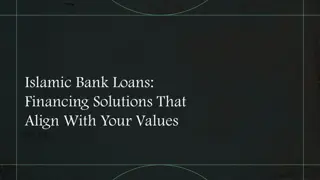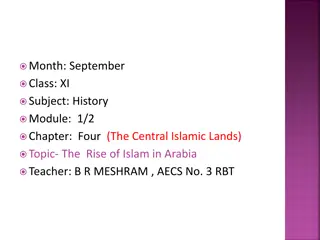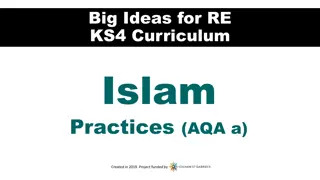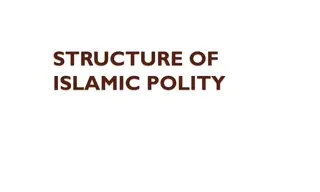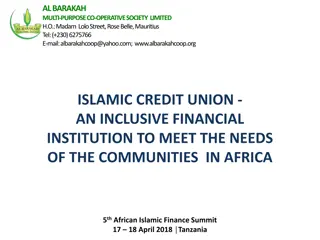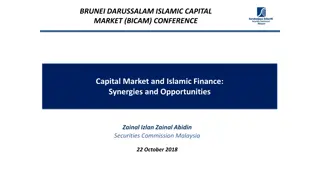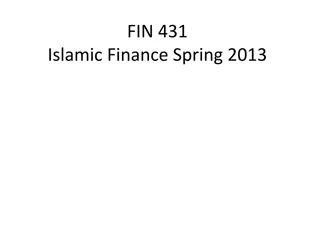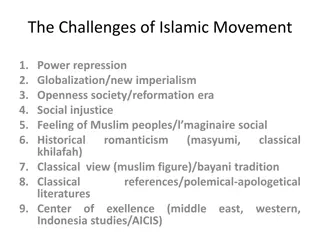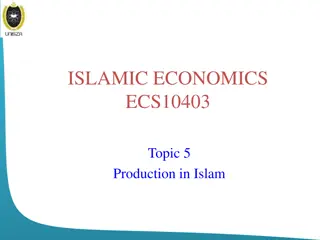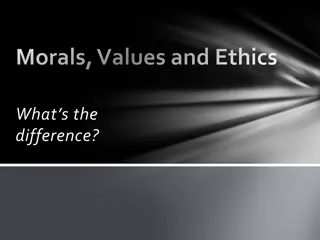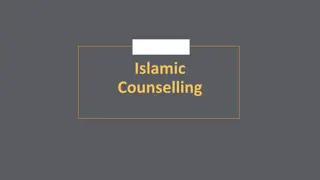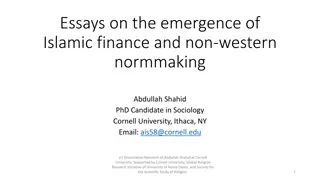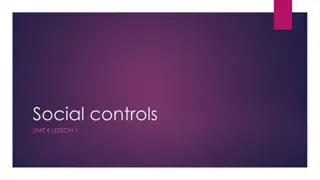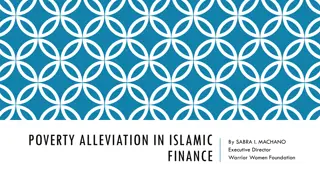Exploring Islamic Practices and Morals for GCSE Studies
This at-home study set delves into Islamic practices and morals, providing material relevant to GCSE exam questions on justice, equality, fasting (sawm), and Islamic perspectives on religious differences. It aims to enhance students' knowledge beyond textbooks, incorporating research findings and examination-style questions to foster a balanced view of Islam.
Download Presentation

Please find below an Image/Link to download the presentation.
The content on the website is provided AS IS for your information and personal use only. It may not be sold, licensed, or shared on other websites without obtaining consent from the author. Download presentation by click this link. If you encounter any issues during the download, it is possible that the publisher has removed the file from their server.
E N D
Presentation Transcript
Islamic practices and morals Islamic practices and morals working towards a balanced view working towards a balanced view A 4-6 hour at-home study-set for GCSE
Introduction This at-home study-set is suited to various parts of GCSE Islam options. It provides material relevant to exam questions about why justice and equality are important to Muslims, related practices such as sawm, and / or Islamic perspectives on religious difference. It should extend students knowledge and understanding beyond the standard text books. Find (and it may be useful to print) the report of Terence Lovat s research at https://www.reonline.org.uk/research/teaching-about-islamic-morality-working-towards- a-balanced-view-of-islam/ .
Introduction (2) Put the research report to one side for now. On the next slide, we ll turn to a GCSE question. (Teachers, the question is an EDEXCEL specification B sample, so you may want to adapt it to your own board before students attempt it. )
Stage 1: Beginning to think about practices and morals in Islam for GCSE (d) Fasting is always valuable for Muslims in modern society. Evaluate this statement considering arguments for and against. In your response you should: refer to Muslim teachings reach a justified conclusion. (15) First, students, draft an outline answer without looking at the next slide. When you ve made your draft, go on to the next slide (it s part of the examiner s mark scheme) and read it carefully, keeping your draft to hand.
AO2 12 marks, SPaG 3 marks Candidates must underpin their analysis and evaluation with knowledge and understanding. Candidates will be required to demonstrate thorough knowledge and understanding as well as accuracy of religion and belief when responding to the question and in meeting AO2 descriptors. Arguments for the statement: It is one of the Five Pillars of Islam and the details are laid out in the Qur an (Surah 2:185), as such it is a religious obligation for all healthy Muslims. Allah would not expect it if it were not worthwhile. As a Muslim is not preoccupied with physical needs they can spend more time on spiritual needs such as prayer and contemplation of Allah which develops will power and self-control. It serves as a valuable means of developing compassion and empathy. This teaches Muslims to be more charitable in giving to those who often go hungry and to be more thankful to Allah for the gifts he bestows on them. Arguments against the statement: Since Allah intends for you ease, and He does not want to make things difficult for you (Surah 2:185) fasting may not always be valuable as fasting during examinations may give poorer results. Many people have physically demanding jobs that operate on a time schedule which does not coincide with a dawn to dusk fast. Fasting, particularly during hot weather, may not be valuable as it may leave them unable to do their job. It is possible to pay kaffarah to atone for a deliberately missed day of fasting. If it is possible to fulfil the intention of the fast by charitable giving then it need not always be valuable in modern society. Accept any other valid response.
Stage 1: Beginning to think about practices and morals in Islam for GCSE (2) How many of the arguments for and against had you included in your draft answer? For a good mark, it will need to be three or four on each side of the argument, as well as a reasoned conclusion. Firstly, read them all through, making sure that you understand them and, if possible, checking with your teacher where necessary; then secondly, build any so far missing into your draft answer.
Stage 1: Beginning to think about practices and morals in Islam for GCSE (3) Let s now have a closer look at how to achieve 12 or more out of 15. You will need to have clearly given three or four of the arguments on each side, showing that you understand them, and how they relate to the question. Spelling, punctuation and grammar will need to have been of a good standard. You will need to have reached a reasoned conclusion, based on careful evaluation of the different arguments in relation to the question. Do you want to look at the full examiner s mark scheme? You can find it at https://revisionworld.com/sites/revisionworld.com/files/imce/Markscheme-Paper1C- June2018_0.pdf Having done so, you can self-assess your answer, noting targets for future improvement as well as your mark out of 15.
Stage 2: enriching knowledge, making connections, deepening understanding When we look at reasons for fasting, we see that these open out into different parts of Islam different beliefs and different practices. One of the reasons given in the mark scheme is: It serves as a valuable means of developing compassion and empathy. This teaches Muslims to be more charitable in giving to those who often go hungry and to be more thankful to Allah for the gifts he bestows on them. Compassion, empathy and gratitude are moral virtues, which is what the rest of the study set s about. We ll look at research that shows how important they are to Muslims, though the media image of Islam isn t always true to this. Let s turn to Terence Lovat s research, mentioned at the start. Read it over carefully, then use the activities in the remaining slides to build and consolidate your understanding of it.
Stage 2: enriching knowledge, making connections, deepening understanding (2) The next few slides give key research points. Note a brief commentary of your own, on each one you could do this straight on to the powerpoint. An example follows. Key point Commentary The third pillar of Islam, zakat, is evidence of a strong commitment to social welfare. From the earliest days, a proportion of income, usually 2.5%, was deducted to support anyone in need. While an ethic towards assisting the poor is to be found in the other Abrahamic religions, Judaism and Christianity, only Islam spells out the obligation in the form of a tax. Muslims have always been required to support the poor. Other religions also believe in this, but only Islam makes it into a legal requirement.
Stage 2: enriching knowledge, making connections, deepening understanding (3) Key point Commentary There are plentiful passages in Islam's sacred texts that insist on respectful treatment of members of other faiths, e.g. in the Qur'an: Sura 21: 107: We have not sent you except to be a provider of mercy and peace to all humankind. Sura 109: to you be your religion and to me be mine.
Stage 2: enriching knowledge, making connections, deepening understanding (4) Key point Commentary The Qur an guaranteed women's right to inheritance, including of property, as well as rights for women to initiate divorce and testify in court. It protected women s rights against coercion, including against sexual violence in marriage.
Stage 2: enriching knowledge, making connections, deepening understanding (5) Key point Commentary Against the stereotype of Islam as intellectually backward, for Islam, knowledge is God s and the more knowledgeable we are, the more we can come to understand God. Medieval Islam pioneered scientific methodology, in areas such as engineering and medicine.
Stage 3: Summing up and evaluating For this summary activity, create a mind-map or other diagram. In one part or colour, include stereotypes of Muslims which you have heard; in another, points from the research that challenge the stereotypes. Here s a pair to start you off; aim for three or four more. Gaining knowledge means gaining knowledge of Allah Muslims pioneered engineering and medicine Islam is backward-looking and unscientific
